Dental Implants
Single Tooth Dental Implants
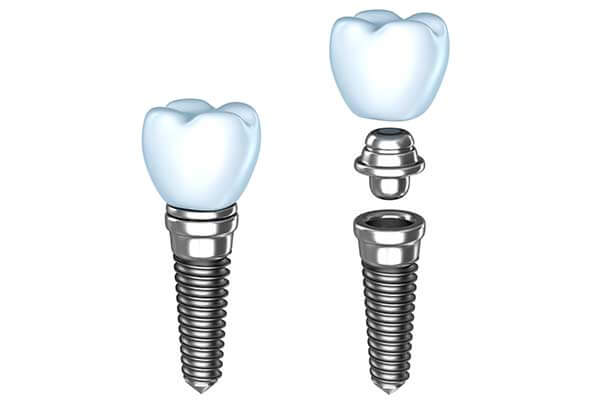
Dental implants replace tooth roots in the mouth. Implants provide a strong foundation for fixed or removable replacement teeth and can aid in the prevention of bone loss in the jaw.
Implant Supported Bridges
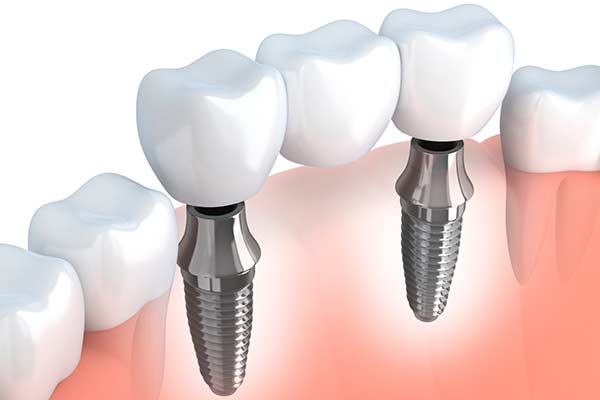
An implant supported bridge is a restorative solution for spaces where three or more adjacent teeth are missing. This restoration typically requires two implants to support the porcelain bridge. The bridge provides a functional and aesthetic replacement for a patient’s natural teeth.
Implant Supported Dentures
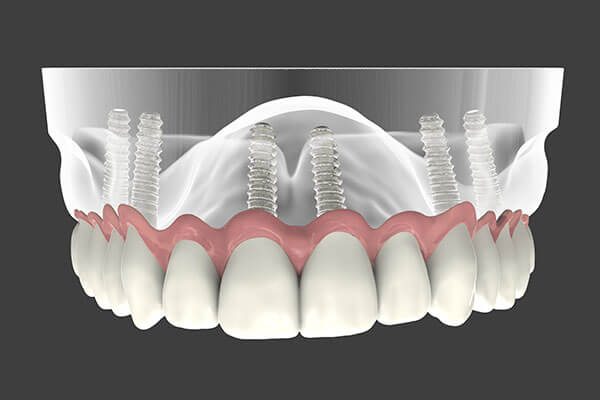
For patients who are missing many or all of their teeth, implant supported dentures may be an alternative to traditional dentures. This solution requires the placement of two or more implants. In order to replace a full arch denture, a minimum of four implants is generally recommended. Eligibility for this solution is dependent upon a number of factors, with jaw bone density being one of the most significant determining factors.
Traditional dentures rely on an acrylic base that sits directly on the gums, held in place by a paste or adhesive. Using implants as supports for dentures allows for a smaller and more comfortable base and less shifting of the prosthesis during use.
Implants can support both full and partial dentures as well as both fixed and removable dentures. If a removable denture is selected, the denture will “snap” on to the implant rather than requiring the use of denture paste or adhesives.
Full Arch with Only Four Implants
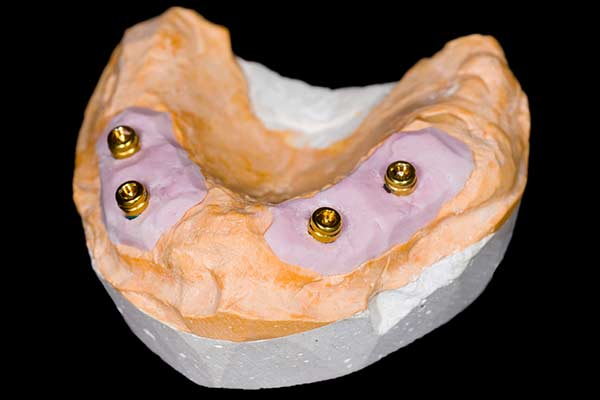
This procedure is a unique implant solution that allows patients with a completely edentulous (toothless) upper or lower arch to replace all of the teeth in that arch using only four implants as anchors.
Mini Dental Implants (MDIs)
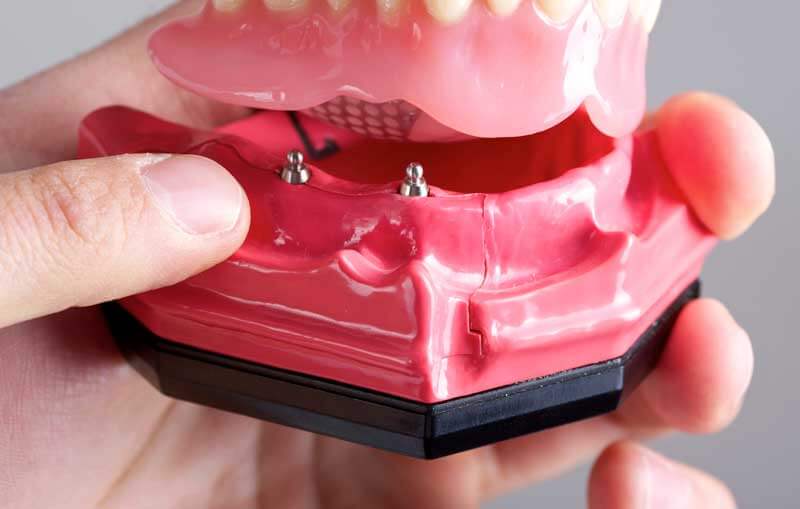
There are times when a full size implant is not a viable option, and in many cases an MDI may be a great solution. Small spaces or inadequate bone mass in the jaw may prevent the use of traditional implants. Mini Dental Implants are similar to regular implants but, as the name suggests, are significantly smaller in diameter. Dental implants typically take 2 visits and require a waiting period of a few months from the time of implant placement to the time the permanent replacement tooth can be placed. The placement of MDIs is minimally invasive, often requiring only local anesthetic and no sutures. For this reason, MDIs can often be placed with the final replacement tooth in one day.
Guided Implant Placement

With this technique, specialized software is used to create custom surgical guides. These guides direct the exact location, angle, and depth of each implant placement. The use of the guide increases the accuracy, efficiency, safety, and predictability of the procedure.
Failing Dental Implants
In the past decade there have been significant scientific and technological advances in implant dentistry. Although these advances improved the success rate of implants to better than 95%, occasionally they do fail. Certain factors can be applied to improve the statistical odds of obtaining a positive result.
One of the most import factors is the doctor performing the surgery. The surgical placement of dental implants is not only a very technically sensitive procedure but also requires an advanced understanding of anatomy and biology . The training, skill and expertise of the surgeon are key factors in the success of the procedure.
Unfortunately, as in any industry, a number of practitioners perform procedures outside of the expertise. You may find it of interest to know that doctors are not required to complete formal surgical training to perform dental implant surgery. Some doctors wanting to place dental implants attend a weekend course, as opposed to a formal three year full time specialty residency program. And although these doctor’s receive a “surgical training” certificate which states that they have training, many have only performed procedures on plastic replicas of jawbones.
Dr. Lupovici in collaboration with his restorative colleagues have been able to remedy a number of previously failed clinical results. Often the solution is straightforward but a number of case solutions will require numerous surgical and restorative treatments. Working with a well trained surgical specialist avoids the unfortunate result of often failed implants.
The Benefits and Importance of Dental Implants
Want to know more about why you should choose dental implants?
Learn More About the Benefits of Dental Implants